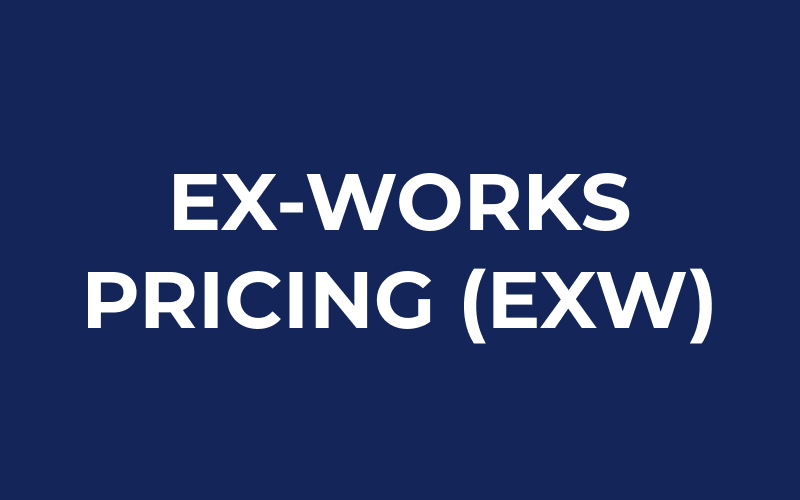
Ex-works pricing (EXW)
Ex-works pricing (EXW), is a pricing method that is based on the cost of the goods or products at the factory or manufacturing site. In this model, the seller is responsible for making the goods available at the factory, while the buyer is responsible for all other costs, including transportation, insurance, and customs fees.
Pros and cons of ex-works pricing
The ex-works pricing model is often used in international trade, where goods are manufactured in one country and then shipped to another. This pricing method is particularly useful for companies that manufacture products with a low profit margin, as it allows them to maintain control over their costs and ensure that they are making a profit. In addition, ex-works pricing can help reduce the risk of price volatility, as it provides a clear understanding of the cost of goods and eliminates the need for complex negotiations between the buyer and seller.
However, there are some potential drawbacks to the ex-works pricing model. For example, the buyer may have to incur additional costs for transportation, customs, and insurance, which can add to the overall cost of the goods. Additionally, there may be risks associated with shipping the goods, such as theft, damage, or loss. To mitigate these risks, buyers may require the seller to provide additional insurance or other protection, which can increase the cost of the goods.
Summary
Ex-works pricing (EXW) is a pricing method in which the seller is responsible for making the goods available at the factory and the buyer is responsible for all other costs, including transportation and customs. This pricing method is useful for companies with low profit margins and reduces the risk of price volatility. However, there are potential drawbacks, such as additional costs for transportation, customs, and insurance, as well as risks associated with shipping the goods.

